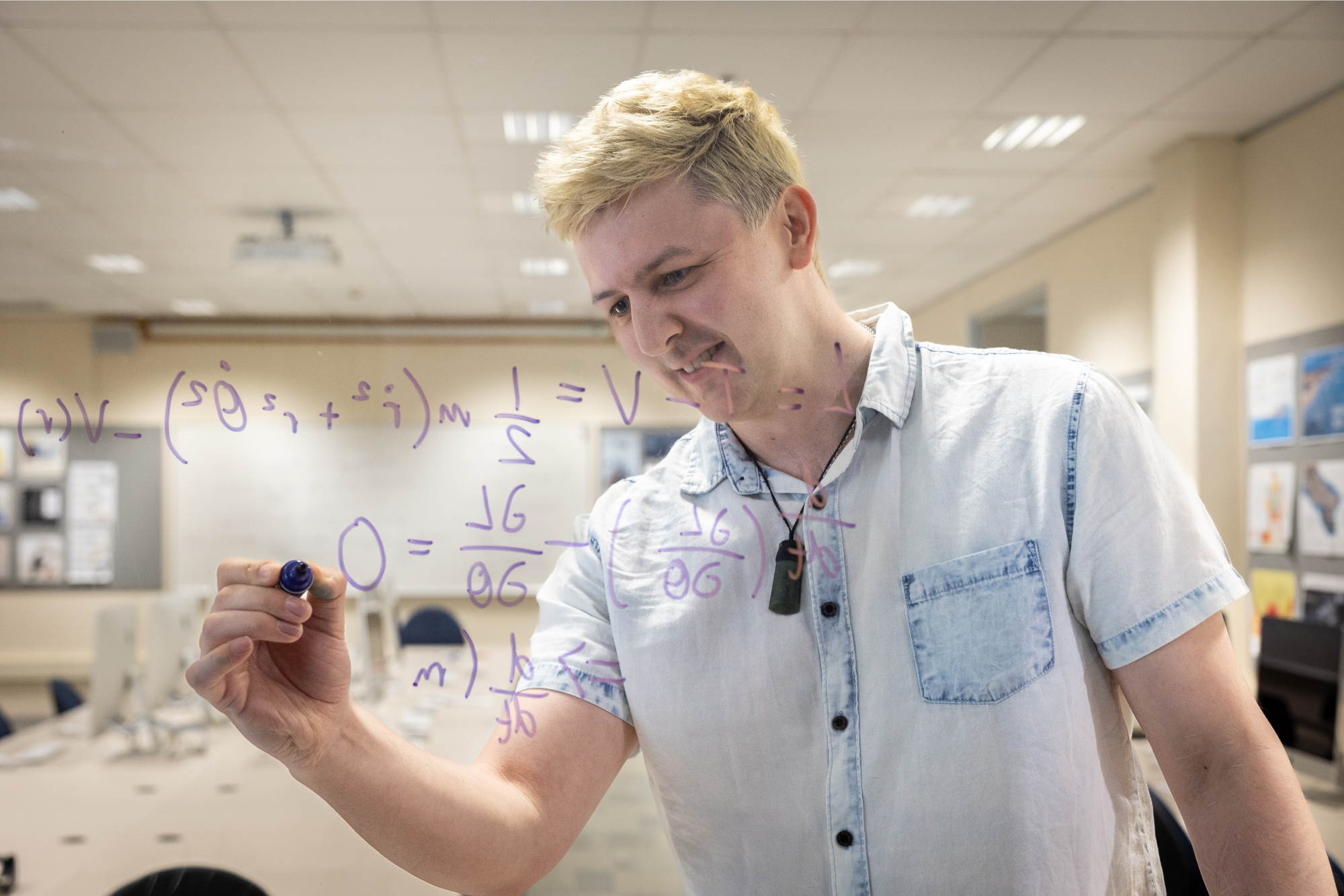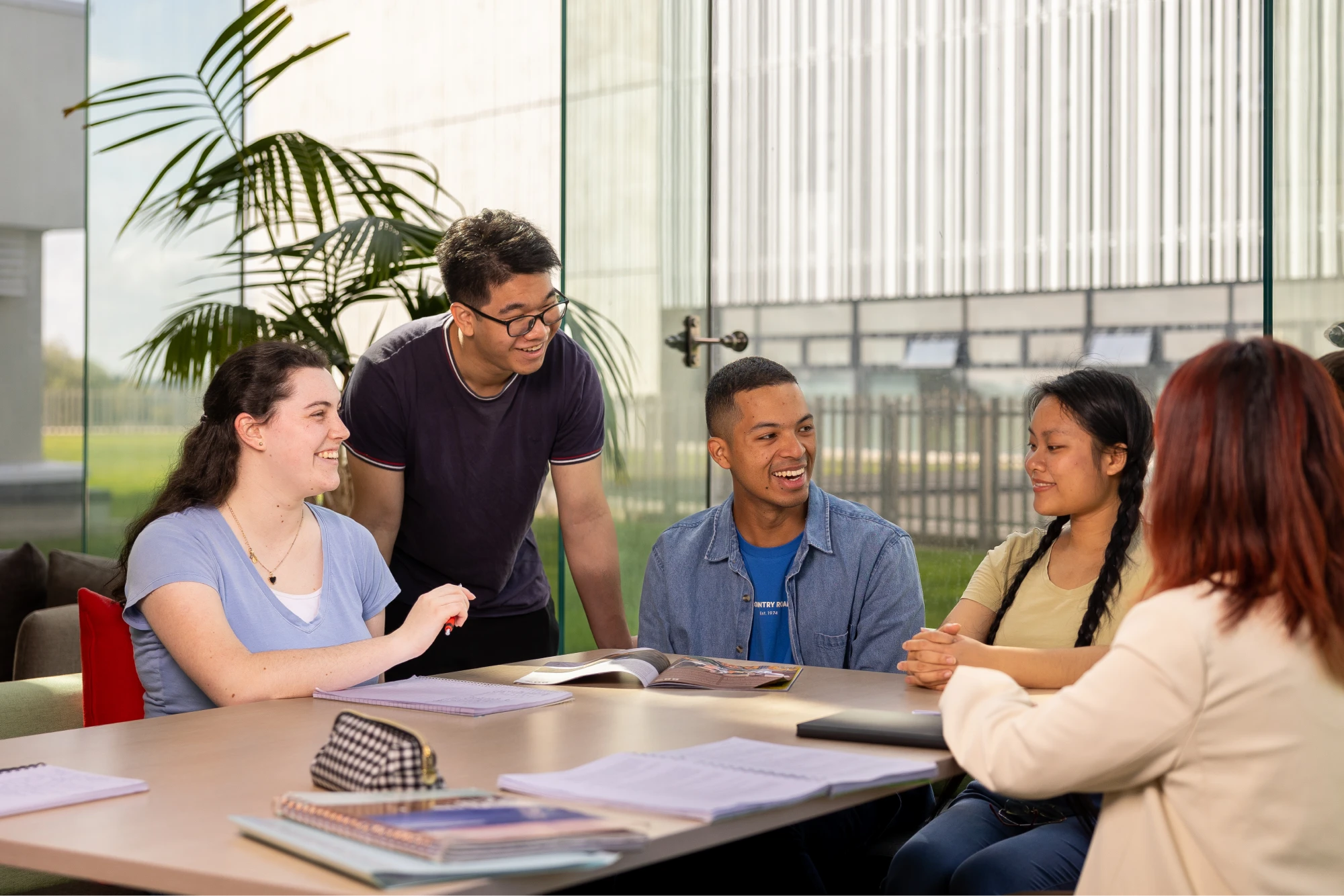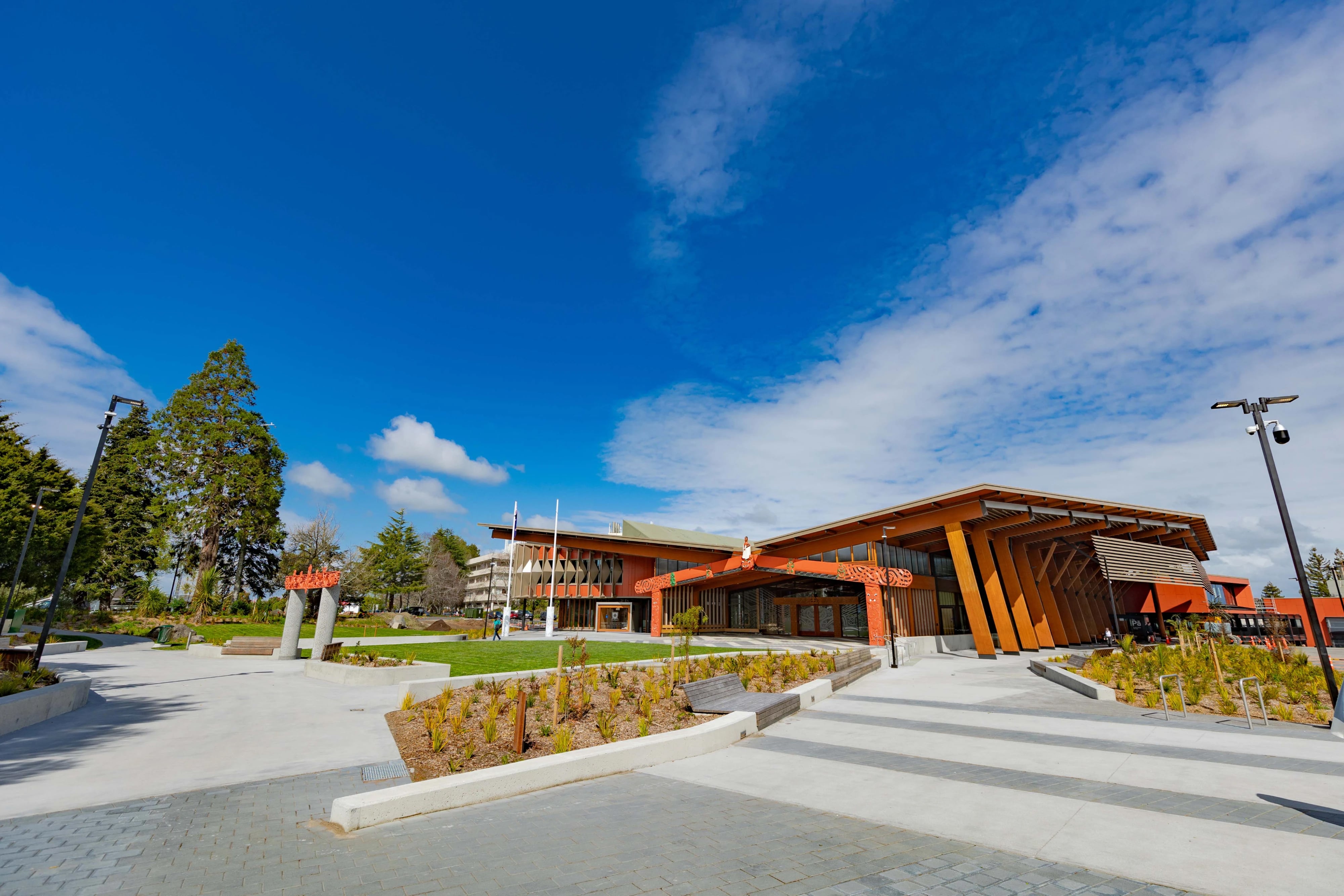Research activities in the School of Computing and Mathematical Sciences take place in research centres and groups. Although many staff participate in projects across different groups, we have arranged the descriptions into these areas, but understand that in practice there is considerable overlap between the activities in the various groups.
Research Groups
The Cyber Security Researchers of Waikato (CROW) aims to return control of data to data owners, by focusing on research addressing data security from a user-centric perspective. With the emergence of cloud computing technologies and prevalent mobile device usage, we are witnessing the diminishing effectiveness of traditional cyber security approaches such as perimeter defence, intrusion detection and infrastructure hardening.
Read more about the Cyber Security Research Group.
Research in computer graphic design is focused on visual communication and interactivity. Central to all investigations are considerations of the user and the experiences of their engagement with both the message and the media. The research encompasses interface and information design for children and adults across a range of digital and traditional media.
Read more about the Design Research Group
The migration of information from paper to electronic media promises to change the whole nature of research and, in particular, the methods by which people locate information. The goal of the New Zealand Digital Library project is to explore the potential of internet based digital libraries. Our vision is to develop systems that automatically impose structure on fundamentally anarchic, uncatalogued, distributed repositories of information, thereby providing information consumers with effective tools to locate what they need and peruse it conveniently and comfortably.
Mark Apperley, David Bainbridge, Sally Jo Cunningham, Annika Hinze, Te Taka Keegan, David Nichols, Nic Vanderschantz, Ian Witten
We have developed an open source digital library system called Greenstone which is widely used in many countries all over the world and has also been adopted to deliver humanitarian information in developing countries. The software makes it easy to produce collections on CD-ROM, which is a practical format for areas with little internet access. The same collections are also available in precisely the same form over the web.
The user interacts through any standard web browser and the software incorporates a web server so that if the system happens to be connected to an intranet (eg in a hospital or school) the information is automatically served to other machines on the network. Many Greenstone CD-ROMs have been produced from various organisations, including NGOs and several UN agencies. UNESCO has adopted Greenstone and works with us to distribute it widely throughout the developing world. We collaborate with the UN FAO on the dissemination of agricultural information; the Humanities Library Project in Belgium on creating new information collections; and the Koha Foundation, USA, on equipping people in developing countries with the ability to create and distribute their own information collections.
Our present research is aimed at re-engineering Greenstone to take account of emerging XML-based standards; extending it into a full content management system; looking at novel interfaces for retrieval and browsing that cater to a wide spectrum of users; monitoring usage to study library users' needs; and developing methods for inferring bibliographic information from document files and using this information to enhance presentation and for bibliometric research.
Read more about the Digital Library Group.
Energy Informatics concerns the application of information technologies to improve the efficiency and effectiveness of energy utilisation, from source, through distribution, to consumption.
Mark Apperley, Bill Rogers
The research of the Energy Informatics group includes (i) maximising the utilisation of energy when and where it is available, (ii) energy conservation – that is ensuring that energy is not used wastefully or unnecessarily, and (iii) end-use efficiency – ensuring that the energy we do use is used effectively. At present the focus of this research is on: electricity demand-side load management and storage mechanisms, which provide a means of improving the integration of renewable energy sources such as wind and tide; smart homes, which involves the integration of these technologies in the home; electric vehicles as an alternative to fossil fuel usage, and as a potential means of providing storage on the electricity grid; and mitigation of energy expended on personal transport.
This research is aligned with New Zealand's energy strategy, to achieve a level of 90% of electricity generated from renewables by 2025. This goal requires better utilisation of existing and new renewable generation sources, particularly wind, solar and tidal/wave, all of which are highly variable in their output, as well as improved efficiency and load management at the consumption end in the face of increasing quality of life expectations and population growth. A further factor influencing the work of this group is New Zealand's goal to reduce greenhouse gas emissions to 80% of 1990 levels by 2020. Electricity generation produces about 19% of the country's greenhouse gases, emphasising the need for more effective utilisation of renewable electricity sources, but transport accounts for 44%, providing another research focus on the impact and integration of electric vehicles on the transport fleet, as well as improved video conference and virtual presence systems to counter the ever-growing trends of personal travel.
Read more about the Energy Informatics Group.
Established in 1998, this is the first Formal Methods laboratory in New Zealand. The work that goes on in this lab is based on the view that programming is at the heart of computer science. It is also based on the view that, as engineers and scientists, we should use the machinery of mathematics to model and reason about the systems that we build before we build them.
Judy Bowen, Robi Malik, Steve Reeves
This is in contrast with the view that programs should be written by trial and error (usually at great expense and with a high likelihood of failure, judged by current experience) with our users ironing out our mistakes for us at their expense. To this end, we are developing languages and tools for modelling systems, for reasoning about those models and for transforming them into code in a way that is guaranteed to preserve meaning and correctness. We do not want to build software that usually works – we want software that always works, and in the way intended by the requirements.
One particular project is aimed at producing methods that will allow the development of user-interfaces to the same level of dependability as the functional part of a system. We are also developing tools for generating test suites from specifications, to improve the cost-effectiveness of testing. We are investigating languages and logics for dealing with refinement at a general level, and techniques for developing discrete event systems.
Driving the work of the lab are problems that we have been presented with by various parts of the New Zealand (and beyond) software development industry. This means that we can be sure our work is going to be useful for solving problems that are important to people outside the research environment.
Learn more about Formal Methods Group.
HCI is the noble face of computer science. The discipline is concerned with designing, implementing and evaluating human-computer interface technologies over an ever-expanding range of applications and environments, as computer technology becomes increasingly pervasive. It involves understanding how computer technology can better fit user needs, and provides theories and tools to assist developers in making useful and usable systems.
Mark Apperley, Judy Bowen, Sally Jo Cunningham, Annika Hinze, Te Taka Keegan, David Nichols, Bill Rogers, Nicholas Vanderschantz.
The work of this research group at Waikato covers many aspects of HCI, including:
- Mobile Devices, Interaction and Applications
- Interaction Design
- Interfaces for Information Retrieval
- Information Visualisation
- Computer-Supported Collaborative Work
- Open Source Usability
- Indigenous Language Interfaces
- User Centred Design (including Formal Methods)
- Knowledge-Based Interfaces
- Smart Environments and Pervasive Computing.
The team is actively engaged in these research areas across a wide range of applications, including meeting support, energy management, realistic virtual books, digital libraries, children's on-screen reading, virtual travel, environments for knowledge workers, second language learning and location awareness. There are extensive connections with the international research community through publication in key journals and conferences, and reflected in visits from leading HCI researchers.
The group has a range of apparatus and infrastructure available for research students including a usability laboratory, large interactive displays, table-top displays, PDAs, GPS units, mobile audio devices, multi-layered display units, vision tracking systems and sketching interaction tools.
Most of the computer applications you encounter today are in fact Information Systems, that means, systems that manage, store and deliver information to users. Examples are search engines like Google, ticket booking systems, or online stores. Exciting new kinds of applications that we look at in the ISDB group are mobile tourist information systems, memory-aid systems and systems that notify you about changes, eg, in web pages or online shops. Our latest projects are context-aware systems that deliver information to their users depending on a user's location, time of the day, task, or mood.
Judy Bowen, Annika Hinze, Nic Vanderschantz
Inside these systems, the data is often stored in a database or another complex storage system. The Information Systems and Databases Group (ISDB) is interested in both – the underlying technical and the application aspects of computer systems. We are working on different types of information systems, addressing a wide range of challenges.
A list of our projects includes:
- A mobile tourist information system (TIP) that provides travellers with up-to-date information about sights and recommends upcoming interesting events and locations to visitors. One aspect of TIP that we recently incorporated is a link to an interactive map service and a digital library. We also support a kind of mobile wikipedia for travellers and a personalised mobile gallery. For this project we co-operate with the HCI and the DL group as well as with the formal methods group. We also work with the Waikato Museum and investigate how to capture ways of different cultures, Māori and Pākehā, to approach the notion of place and history.
- An electronic parrot – a personalised extension of your memory that will make it easier to remember people, events, and data. This project was started just recently. We are concerned with questions like: How can we describe, store and access the data? What would a useful interface look like?
We also look at aspects of events and change management in the semantic web, in digital libraries, and in health care. In addition, we focus on the more technical side of information systems by analysing distributed event notification.
We are the youngest group in the department. That also means that a lot of our projects are done with close co-operation and support by our students in the department.
More information at the Information Systems and Databases website.
Machine learning is concerned with the task of automatically extracting useful information from data. The aim is to identify patterns that can be used to understand the domain from which the data was collected and to make predictions.
Consider the task of constructing a spam filter for email messages. Instead of laboriously creating a handcrafted set of filtering rules, we can use machine learning to extract patterns that differentiate spam from ham, based solely on a collection of messages that have been labelled as spam and ham respectively, and then use those patterns in the filter. Consider the task of understanding customer preferences by mining for interesting patterns in supermarket checkout data. There are efficient algorithms that can automatically extract those patterns in the form of simple if-then rules. Given the availability of vast amounts of raw data in electronic form, there is a plethora of applications for machine learning techniques.
Albert Bifet, Eibe Frank, Geoff Holmes, Lyn Hunt, Bernhard Pfahringer, Tony Smith, Ian Witten
Our team works on new, more efficient, algorithms for machine learning and data mining as well as new applications. We are well known for a software "workbench" called the Waikato Environment for Knowledge Analysis (WEKA), which contains a large number of machine learning techniques. WEKA is widely used for research, teaching, and commercial applications of machine learning. It has been used to help determine what information dairy farmers use in deciding which cows to keep in their herds, been applied to bioinformatics problems such as gene interaction discovery, and been used for many other applications such as mining supermarket transaction data for high profit product associations, predicting the levels of chemicals like nitrogen and carbon in soils to aid farmers' fertilizer decisions, and processing natural language to extract keywords from documents.
More information can be found on the Machine Learning website.
Staff in the Department of Mathematics carry out research on a wide variety of topics in pure and applied mathematics, work that calls on mathematical knowledge from many fields such as algebra, analysis, number theory, differential equations and numerical analysis.
Read more about the Mathematics Research Group

Postgraduate Research
Information on our key research areas, identify potential supervisors, and learn more about undertaking Master's or PhD research with us.

Research Publications
Research Publications produced by members of the Computer Science and Software Engineering Departments.

Te Ara Tatauranga - Statistics Consulting
Te Ara Tatauranga offers expert statistical and mathematical consulting for Waikato staff, students, and external clients—covering design, analysis, ethics, and modelling.

Centre for Open Software Innovation (COSI)
COSI at the University of Waikato fosters open development in computer science, supporting projects in cyber security, machine learning, and digital libraries.
Research Software
Through research, the Departments of Computer Science and Software Engineering have helped to develop innovative and user-friendly software and tools. For details visit the Centre for Open Software Innovation.
Ethical Consent
Staff and students planning a study that involves human participants will need approval from the STEM Human Research Ethics Committee.
Find out more information about applying for ethical consent.